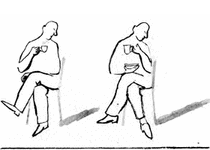- Dla kandydatów
- Dla studentów
- Informacje dla studentów I roku
- Informacje ogólne
- Informator o studiach
- Organizacja roku
- Zarządzenia Prodziekana ds. studenckich
- Kolokwia i egzaminy
- Prace i egzaminy dyplomowe
- Materiały dydaktyczne
- Pracownie
- Pracownia Projektów Studenckich
- Zespołowe projekty studenckie
- Oprogramowanie
- Konta i hasła w sieci studenckiej
- Studia doktoranckie
- Studia podyplomowe
- Samorząd, koła, kluby, chór
- Stypendia i sprawy socjalne
- Oferty pracy
- Dla pracowników
- Dla gości
- Badania
- Rada Naukowa Dyscypliny Nauki Fizyczne
- Kierunki badań
- Priorytetowy Obszar Badawczy II IDUB
- Realizowane projekty
- Sekcja ds. Obsługi Badań
- Seminaria i konwersatoria
- Konwersatorium im.J.Pniewskiego i L.Infelda
- Algebry operatorów i ich zastosowania w fizyce
- Środowiskowe Seminarium Fizyki Atmosfery
- Seminarium Zakładu Biofizyki
- Seminarium z fizyki biologicznej i bioinformatyki
- Seminarium Fizyki Ciała Stałego
- Multimedialne seminarium z ekono- i socjofizyki
Exact Results in Quantum Theory
- Środowiskowe Seminarium Fotoniczne
- Seminarium Fotoniki
- Seminarium Zakładu Fotoniki
- Seminarium Gamma
- Seminarium "High Energy, Cosmology and Astro-particle physics (HECA)"
- Środowiskowe Seminarium z Informacji i Technologii Kwantowych
- Seminarium Fizyki Jądra Atomowego
- Seminarium fizyki litosfery i planetologii
- Seminarium Fizyki Materii Skondensowanej
- Seminarium "Modeling of Complex Systems"
- Seminarium nauk o widzeniu
- Seminarium "Nieliniowość i Geometria"
- Seminarium Optyczne
- Soft Matter and Complex Systems Seminar
- String Theory Journal Club
- Seminarium Koła Struktur Matematycznych Fizyki
- Seminarium "Teoria cząstek elementarnych i kosmologia"
- Seminarium KMMF "Teoria Dwoistości"
- Seminarium Teorii Względności i Grawitacji
- Seminarium "The Trans-Carpathian Seminar on Geometry & Physics"
- Seminarium Fizyki Wielkich Energii
- Seminarium Fizyki Biomedycznej
- Konferencje
- Publikacje
- Research Highlights
- Optyka na Uniwersytecie Warszawskim
- Wydział
- Misja i strategia
- Władze Wydziału
- Zarządzenia Dziekana
- Zarządzenia Prodziekana ds. studenckich
- Struktura organizacyjna
- Historia Wydziału
- 90 lat Wydziału Fizyki
- 100 lat Wydziału Fizyki
- Fizykoteka – Wirtualne Muzeum Wydziału Fizyki UW
- Dziekanat
- Rada Wydziału
- Jakość kształcenia
- Stopnie i tytuły naukowe
- Nagrody Wydziału Fizyki
- Biblioteka
- Ośrodek Komputerowy
- Pracownicy i doktoranci
- Zamówienia publiczne
- Rezerwacja i wynajem sal
- Oferty pracy
- Osoby
- Zapraszamy
- Media
Exact Results in Quantum Theory
2006/2007 | 2007/2008 | 2008/2009 | 2009/2010 | 2010/2011 | 2011/2012 | 2012/2013 | 2013/2014 | 2014/2015 | 2015/2016 | 2016/2017 | 2017/2018 | 2018/2019 | 2019/2020 | 2020/2021 | 2021/2022 | 2022/2023 | 2023/2024 | 2024/2025 | Strona własna seminarium
2014-06-06 (Piątek)
Grzegorz Lach (IFT UW)
Between gravitation and QED
2014-05-30 (Piątek)
Prof. Piotr Chankowski (IFT UW)
Critical exponents, exact (functional) renormalization group and the hierarchy problem
2014-05-23 (Piątek)
Hal Haggard (IFT UW)
The Phase Space of Shapes of Curved Polyhedra
2014-05-16 (Piątek)
Emanuele Alesci (IFT UW)
Quantum reduced loop gravity
2014-04-11 (Piątek)
Prof. Piotr Chankowski (IFT UW)
How to teach Quantum Field Theory
2014-04-04 (Piątek)
Ingemar Bengtsson (IFT UW)
The Clifford Group: what it is and what it does
2014-03-28 (Piątek)
Jacek Puchta (IFT UW)
Bubble divergences in spin-foam models - graph diagram approach
2014-03-21 (Piątek)
Prof. Jan Derezinski (IFT UW)
On the excitation spectrum of quantum gases
2014-03-14 (Piątek)
Krzysztof Pachucki (IFT UW)
Molecular integral as a Sturm–Liouville problem
2014-03-07 (Piątek)
Antonia Zipfel (IFT UW)
Plebanski sectors of the Lorentzian 4-simplex amplitude
2014-02-28 (Piątek)
Maciej Dunajski (DAMPT, Cambridge)
The geometry of Higgs's vortices
2014-02-21 (Piątek)
Marcin Napiórkowski (KMMF UW)
Mean-field dynamics of excitaions in a Bose gas
2014-01-24 (Piątek)
prof. Jan Dereziński (KMMF UW)
My observations on how physicists use QED
I will start with a short story, hopefully entertaining.Then I will discuss the general philosophy of precision computations of Lamb shifts using QED, based in particular on the works of Shabaev and Pachucki. I will explain two kinds of effective Hamiltonians. Then I will discuss the formalism of time-ordered and 2-times Green's functions. Finally, if there is still time, I will say about the structure of QED and possible perturbative approaches, which re relevant for te bound state computations.
2014-01-17 (Piątek)
Adrian Lewandowski (IFT UW)
Renormalization group improvement of the effective potential
2014-01-10 (Piątek)
Andrea Dapor (IFT UW)
Coherent State Quantization of Cosmology
I will give an introduction to integral quantizations, with stress on the quantization of a particle in 1 dimension in terms of coherent states of Heisenberg group. The same formalism will then be applied to the quantization of homogeneous isotropic cosmology (the only difference being the replacement of Heisenberg group with the Affine group). I will show how this simple procedure leads to a quantum theory in which the initial Big Bang singularity is removed, and how the semiclassical limit can be naturally estracted.
2013-12-20 (Piątek)
Michał Wrochna (Université Paris-Sud 11)
Quantization of the Maxwell field on curved spacetime - an up-to-date review
2013-12-06 (Piątek)
Satoshi Nawata (NIKHEF, Amsterdam)
Chern–Simons theory, quantum knot invariants, and volume conjectures (Part II)
I will give an introductory talk on relations between quantum knot invariants and Chern–Simons theory. The seminal paper by Witten showed that Chern–Simons theory provides a natural framework for the study of 3‐manifolds and knot invariants. I will explain how the path integral formulations of invariants in Chern–Simons theory has led to rigorous formulations in mathematics. In addition, I will mention about the volume conjecture which relates quantum knot invariants to geometry of knot complements in S^3. The talk is supposed to be accessible to both mathematicians and physicists.
2013-11-29 (Piątek)
Antonia Zipfel (FUW)
On the properties and solutions of the Hamiltonian constraint in LQG
2013-11-22 (Piątek)
Adrian Lewandowski (IFT UW)
Renormalization group equation and its application to the effective potential
2013-11-15 (Piątek)
Krzysztof Meissner (IFT UW)
Black Hole Entropy
I will discuss the original Bekenstein Hawking formula for entropy, its derivation within the Euclidean Schwarzschild solution and within Loop Quantum Gravity and the mysterious fact of extremely low entropy of our Universe.
2013-11-08 (Piątek)
Jan Dereziński (KMMF UW)
Vector quantum fields
2013-10-25 (Piątek)
Martin Bojowald
What happened before the big bang?
The standard model of cosmology suggests that the universe started with a phase of very high density, described by general relativity as a singularity. Quantum gravity attempts to resolve the singularity by a more fundamental, microscopic theory whose equations remain valid and could tell us what happened at or even before the big bang. This talk reviews one approach, loop quantum gravity, and discusses several surprising new results that shed light on the structure of quantum space-time, with implications for mathematical modelling and conceptual questions in cosmology.
2013-10-18 (Piątek)
Jędrzej Świeżewski (IFT UW)
Some properties of the irrotational dust
2013-10-11 (Piątek)
Jacek Puchta (IFT UW)







